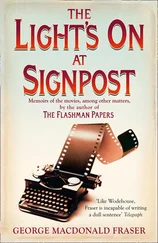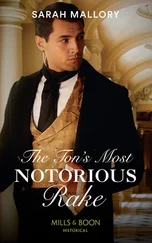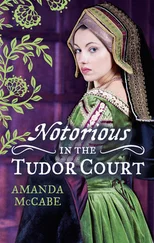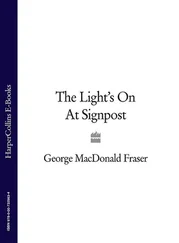On this damp, grey, very English, spring day, Thursday 9 April 1747, warders and friends begged his Lordship to petition the King for mercy. ‘He was so old and infirm that his life was not worth asking,’ he replied.
This was not true. His life, and the ending of it, was worth a lot to many different people.
‘For my part,’ he claimed, ‘I die a martyr for my country.’
The barber returned his wig and his Lordship thanked him. ‘I hope to be in heaven by one o’clock,’ he said, ‘or I should not be so merry now … The soul is a spiritual substance.’ It could not be ‘dissolved by time’.
The barber wished the prisoner ‘a good passage’ across. Lovat looked out of the window. He was going to slip through the bars of life and escape to heaven, he was sure of it.
* * *
The previous month, Lord Lovat had been impeached for high treason as a Jacobite rebel. The whole House of his fellow Lords, including many former friends and allies, removed to Westminster Hall especially for the trial and one by one pronounced him ‘Guilty, upon my Honour’.
Simon Fraser, the 11th Lord Lovat and leader of Clan Fraser – MacShimidh Mor in Gaelic – was the son of ‘the great Simon’ and the last of the great Celtic–Scottish chiefs. The Frasers had fought their way from France onto the beaches of England with William the Conqueror. One of Lovat’s forebears was Robert the Bruce’s chamberlain. Another had been William Wallace’s compatriot in the Scottish Wars of Independence from England; when the English captured him he was hung, drawn and quartered.
Four hundred years after his ancestor’s bloody end, Lovat was condemned to suffer the same brutal fate, though in the end he was merely beheaded. Lovat would die for an independent Scotland – or ‘North Britain’ as many maps now called it – to secure the fortunes of the Fraser clan, and for Bonnie Prince Charlie’s lunge at the thrones of his Stuart ancestors. For decades Lovat had maintained a double life, spying for and against the Houses of Stuart and Hanover. He had made fast friends and sworn enemies. His scheming had inadvertently led to the 1707 Act of Union, in which the Parliaments of Scotland and England were incorporated into Great Britain. He cursed it as ‘Cette Union infernelle’.
In Georgian Britain, all convicted felons about to ‘be launched into eternity’, both common and gentle, were expected to do so showing plenty of ‘bottom’, a certain gutsy dash. According to the broadsheet reports, in the days before Lovat’s beheading, the old man (he was about eighty when he died) faced his fate with ‘jocoseness’ and ‘gaiety’. Smoking his last pipe, he knocked it out into the fire, and gave the pipe away as a relic. The ash from it fell in little clods. He watched the eddying specks as the dust rioted away in the air. ‘Now, gentlemen,’ he said to his companions, ‘the end of all human grandeur is like this snuff of tobacco.’
As he smoked his pipe, ate his last meal, drank beakers of hot chocolate, dressed and prayed, the wooden scaffold grew greasy and slippery in the morning drizzle. London life went on around it. Maids raised fires in the first-floor drawing rooms around the square on Tower Hill, to take the chill from the rumps of the curious rich and rare as they watched in comfort. Tall chimneys smoked.
Before dressing to spectate at Tower Green, a gentleman wrote to his friend over breakfast. ‘Lord Lovat is to lose his head in a few hours, and the day being rainy is likely to prove a great disappointment to the crowds that are hastening to see the execution … Perhaps such tragical scenes may do good to somebody: and though this old man be highly guilty and his guilt very inexcusable, yet a considerate spectator cannot but be led to pity and bewail the corruption and infatuation of human nature when he sees a man almost at the utmost period of human life, under no necessitous circumstances … with a plentiful fortune and everything he could reasonably desire without any danger of losing it; and yet not content therewith, he must disturb the peace of the country, and endeavour to overthrow the constitution thereof. Men should consider that when they are endeavouring to break down hedges a serpent may bite them.’
Soldiers marched to the base of the scaffold. Unhurried, they formed up in rows between the block and the mob. Many of the crowd had gathered early, clambering up the stairs to rows of wooden benches, to get a clear view across to the block on the same level as the victim. Towards ten o’clock, one of the packed timber terraces, desperately overcrowded, collapsed. Those beneath panicked and drove themselves back from the splintering beams and planks. Bodies were crushed and impaled. The injured were carted away, some ‘screaming themselves to death’. There were nine corpses. The wood was shoved to one side, to be looted for firewood by the poor.
News of the slight delay this incident caused to proceedings reached Lovat.‘Good,’ he grunted, ‘the more mischief the better the sport.’ Sensitive to omens all his life, it was a sign that God was on his side. This execution was a sin.
Lesser players in the drama came and went from the scaffold. One was Mr Baker, the chaplain from the Sardinian Embassy, and the only Roman Catholic priest licensed to practise in England. He knelt now before the image of the crucified Lord and prepared himself to oversee the release of another papist ingrate from the twists and turns of the mortal coil. Government representatives lounged about on the scaffold, chatting with Lovat’s closest clansmen and friends. The gentlemen and bureaucrats gazed with distaste on the rabble. The officials were here to get the administration of the sentence right, and to record any last words of inspiration or insurrection. Carpenters hauled an empty coffin up steep steps, and dumped it in a corner. The executioner, John Thrift, laid out and checked the tools of his trade, and fiddled around the block. 1
The huge square had the atmosphere of a gala occasion. The Bonnie Prince, Charles Stuart, had slipped the hounds. The Old Fox caged in the Tower was the government’s most high-profile prisoner. There was a clamour to see him. The press had kept the name of the unseen ‘wicked’, ‘dangerous’, ‘notoriously to be suspected’ Lord Lovat in the public consciousness. Even though they had him now, he was still talked up as a threat to national security. The masses were beside themselves. The heart of England shouted, kissed, gossiped, ate and drank. Ballads about the drama began to flow from one to another, celebrating victory over ‘Old England’s Foe’.
As through the city Lord Lovat did pass,
The people in hundreds did follow,
And cried ‘You Old Fox you are catched safe at last’,
While some hissed and others did hollow …
It took about an hour to clear the dead and maimed from the terraces and then the Sheriffs of London sent their message to the prisoner. The axe demanded ‘his body’. When Lovat appeared, the tension ratcheted up by raucous degrees. Although ‘clogged with infirmities and pain’, the old man was an imposing presence. ‘He is tall, walks very upright considering his great age, and is tolerably well shaped,’ reported one news-sheet. ‘He has a large mouth and a short nose, with eyes very much contracted and down-looking, a very small forehead, almost all covered with a large periwig; this gives him a grim aspect, but upon addressing anyone he puts on a smiling countenance.’
No longer any harm to anyone, he had to be helped up the scaffold steps by his servants. James Fraser, a close kinsman and executor of his chief’s will, struggled to compose himself. ‘Cheer up thy heart man,’ Lovat patted his shoulder. ‘I am not afraid … My dear James I am going to heaven, but you must crawl a little longer in this evil world,’ and gave him his silver-topped cane as a memento.
Читать дальше












